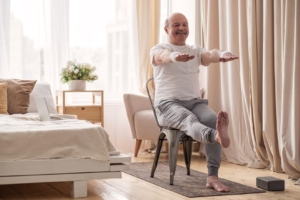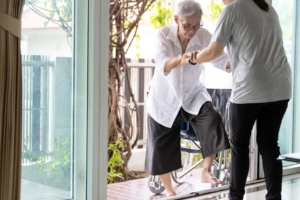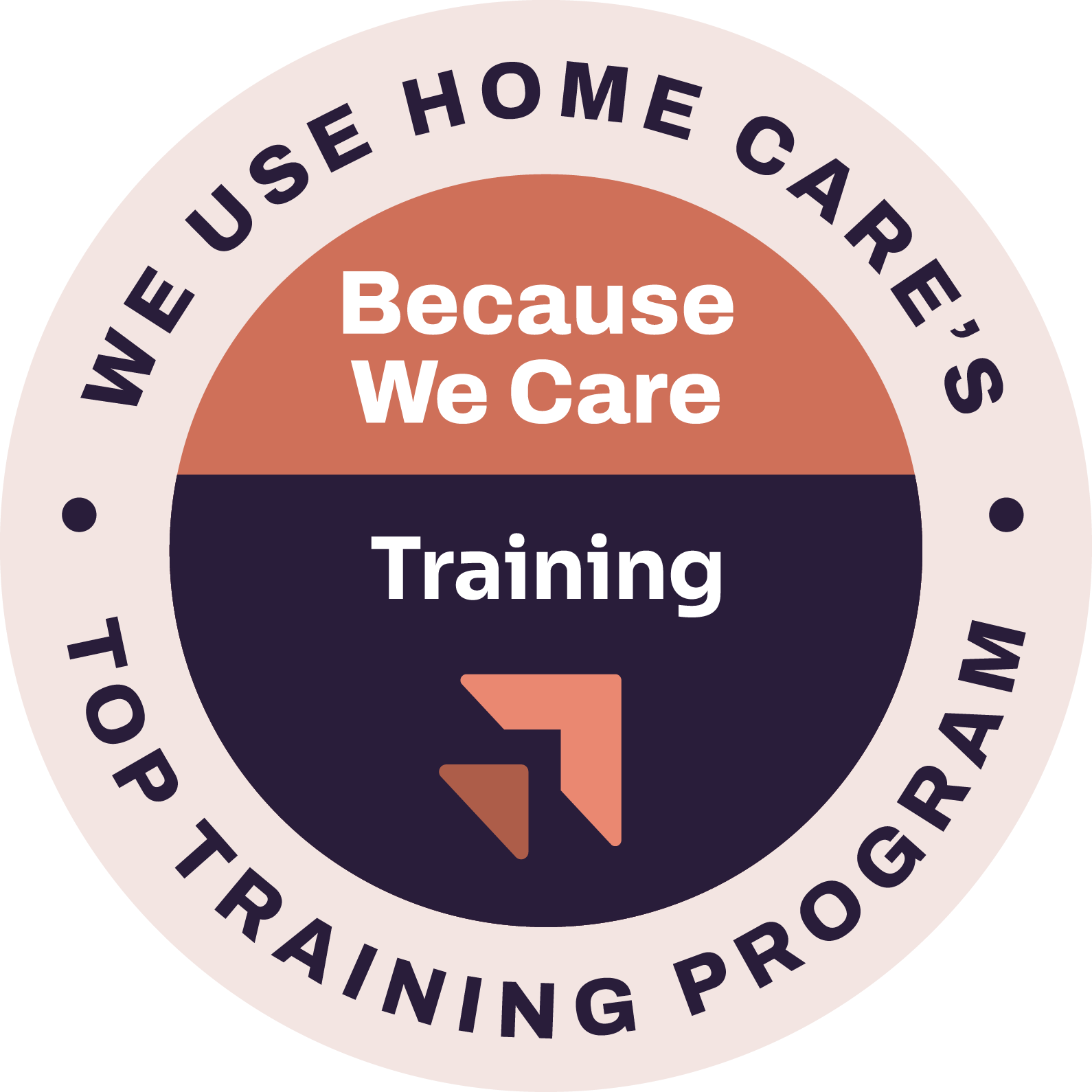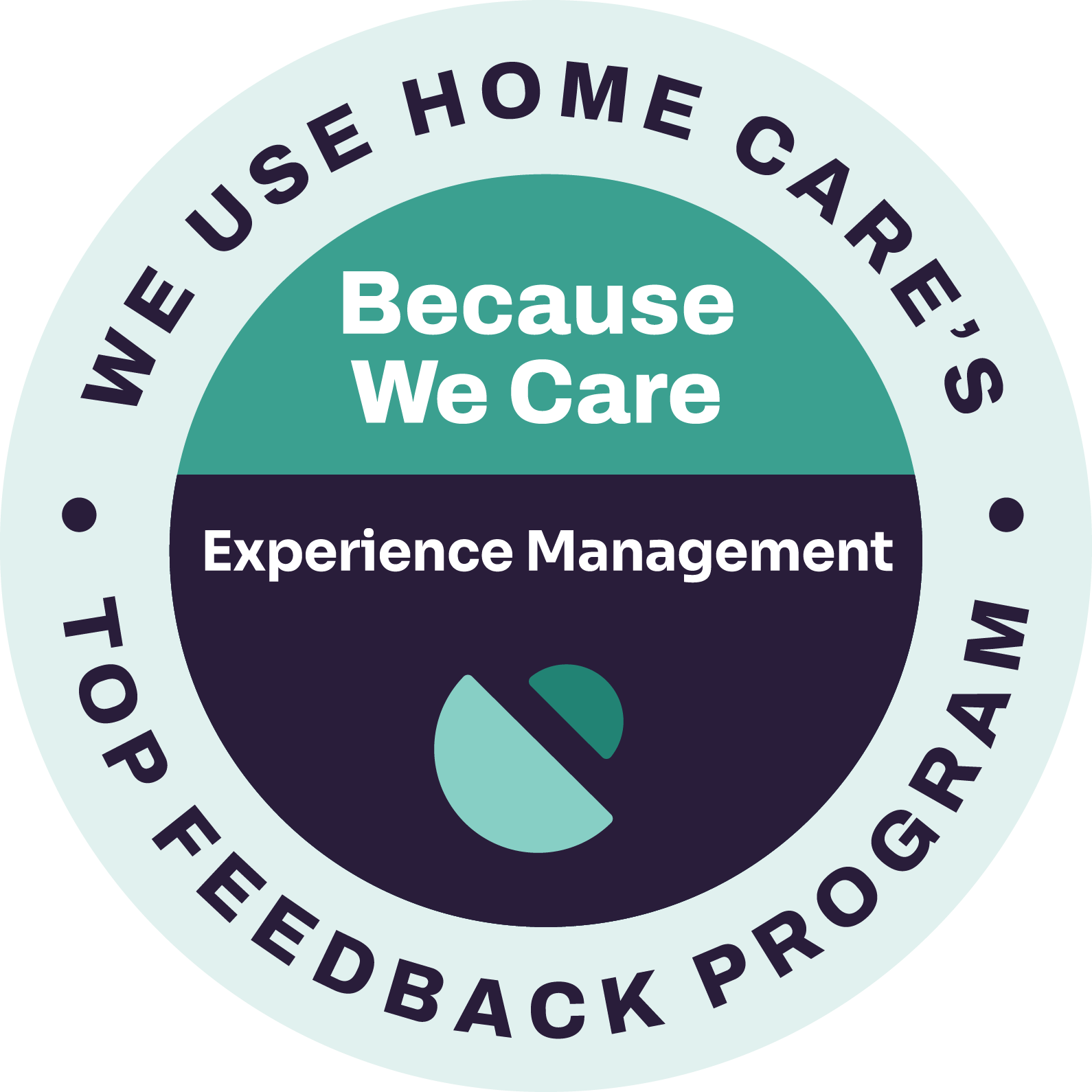Tom, in his late 70s, was in reasonably good health, though his diabetes had caused eye problems and neuropathy in his feet. Not long after moving into a senior community, Tom fell and broke his ankle. With a motorized scooter, Tom was able to still get around. While initially a blessing, the scooter became a crutch, as Tom preferred its ease and became increasingly sedentary.
Tom hired a caregiver, Danny, to help with laundry, cleaning, and changing the bed sheets. Beyond the caregiving tasks, Tom looked forward to his caregiver visits and the two became fast friends. Noticing Tom’s increasing apathy towards physical activity, Danny began encouraging Tom to rejoin his community’s gentle aerobics class and even added some strength training. Additionally, Danny drove Tom to his doctor appointments and even to get special shoes. Tom’s overall health and well-being improved: he was moving more and feeling better.
Companion care is more than just being present.
It’s about helping our clients achieve their goals.
Many times, companion care is thought of in terms of alleviating loneliness and isolation, which it does. (More – Health Risks of Senior Loneliness.) But often overlooked is companion care’s physical health benefits!
Increased Activity Levels
Engaging conversations, activities such as puzzles, or even helping with hobbies prevent long periods of inactivity that could negatively affect circulation and muscle tone. Sunlight caregivers can encourage and assist with physical activities like walking, gardening, or light exercises. This increased movement helps maintain muscle strength, flexibility, and balance, reducing the risk of falls and injuries. Plus, just getting out of the house can be enjoyable and motivating! As with Tom, encouraging simple, seated exercises helps keep a body moving.

Resource: SilverSneakers
Are you a member of SilverSneakers? SilverSneakers is a health and fitness program designed for adults 65+. Many people are enrolled through their Medicare Advantage plan. If so, you can participate in fitness classes for all abilities offered at dozens of locations in Lincoln, Omaha and Des Moines. Prefer to stay home? SilverSneakers has live online classes and an extensive library of on-demand video workouts. Even if your Medicare plan doesn’t provide a complimentary SilverSneakers membership, you can still access 100s of online classes. Visit their website.
Physical Activity and Dementia
A research study published by the National Institutes for Health cites:
- Physical exercise plays a positive role in the health of older adults with Alzheimer’s Disease.
- Physical activity increases muscle strength and promotes better physical functioning abilities and mobility.
- Some studies demonstrated cognitive improvement from physical activity.
- Physical activity contributes to improvement in psychological and behavioral symptoms, for example, better mood, positive affect, fewer depressive symptoms, and reduction in unwanted behaviors such as wandering and aggressive behaviors.
Improved Nutrition
In assisting with preparing meals, Sunlight Caregivers help ensure our clients have a balanced diet. Our caregivers can accompany their clients to the grocery store to select nutritious foods. They can also monitor water intake to help prevent dehydration. Not drinking enough water can lead to fatigue, persistent headaches, and is the #1 factor in developing kidney stones.
Doctor Appointments and Taking Medications
Sunlight Caregivers can help schedule doctor’s appointments and accompany their clients, ensuring they receive regular check-ups and screenings. This early detection of potential health issues allows for timely intervention and treatment. Caregivers can also help ensure their clients take medications on time.
Early Detection of Health Changes

In spending significant time with their client, the caregiver may notice changes in their physical condition. Sunlight Caregivers report this in shift notes and to their Care Coordinator who in turn can notify family or a case manager. This early detection allows for prompt medical attention and intervention.
In-home care is a more personalized and comfortable approach to senior care, with companion care providing a host of surprising benefits that can significantly improve health and wellness. While maintaining independence and mental health are often top of mind, increased physical activity and its benefits, due to having a caregiver, is equally important.
Want to learn more about how companion care can benefit you or your loved one? Schedule a free consultation today.
Remember, a little companionship can go a long way!






